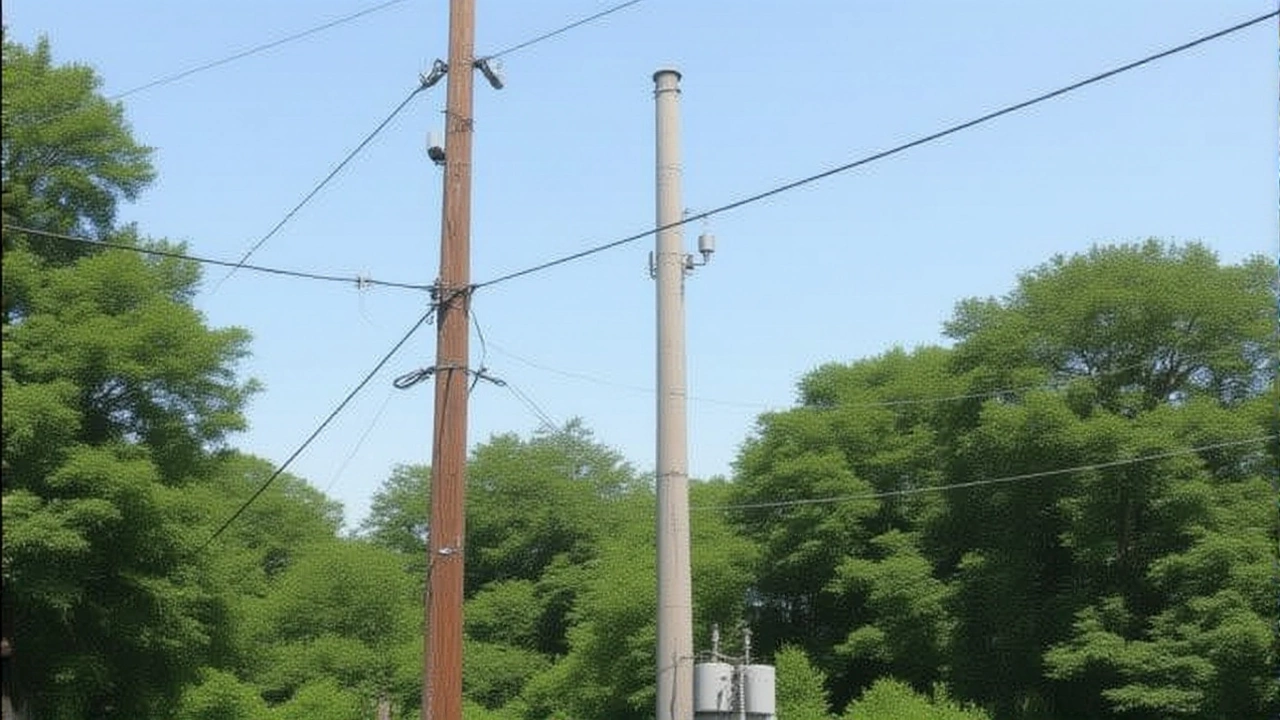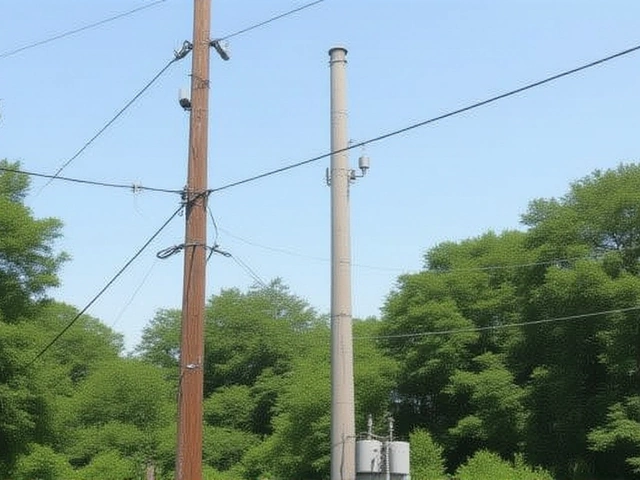CenterPoint Energy Can Shut Off Power Without Notice, Homeowners Warned

When Hugo, a homeowner in Spring, Texas, received a letter about an "essential planned outage," he never imagined the legal backdrop that lets CenterPoint Energy pull the plug without a heads‑up.
Reporting on the case, Amy Davis, a reporter for KPRC 2, learned that the Public Utility Commission of Texas (PUC) grants the utility that leeway, except for a narrow list of "critical care" customers. The commission’s rules kick in only when the National Weather Service officially labels an event a severe heat or freezing warning.
In Hugo’s case, the outage was slated for 9:00 a.m. on October 1, 2025, and would last roughly eight hours – right in the middle of a 90‑plus‑degree spell that had Houston’s thermometers flirting with the 100‑degree mark. Caroline Brown, a meteorologist with KPRC 2, reported 96 °F in Navasota and 92 °F in Kingwood that very day, underscoring why many residents felt the outage was unsafe.
Why the Law Allows Unannounced Shut‑offs
The PUC’s stance is crystal clear: utilities must only notify their retail electric providers and any customers on a "critical care list." Those on the list typically rely on life‑support equipment and therefore receive a separate written notice. For everyone else, the utility’s tariff – a filing that carries the force of law – says there’s no legal requirement to give advance notice beyond what the company deems necessary.
Tariff language, filed in February 2025, reads, "the company will not be liable for any damages" arising from a power interruption, whether it’s planned or unplanned. That clause has already left several Houston‑area homeowners scrambling for answers.
Real‑World Fallout for Residents
Take Riechelle Williams of Pearland’s Shadow Creek Ranch. In June 2025, a brief outage triggered a cascade of circuit‑breaker trips, costing her about $4,000 in repairs. When she filed a claim with CenterPoint, the utility pointed her back to the tariff, essentially saying, "Sorry, no compensation."
She wasn’t alone. Theresa Touchette described a night when her ceiling fan whirred at "100 miles an hour" while she lay in bed. Vicki Latson told reporters her insurance denied her claim because CenterPoint refused to provide the necessary documentation, leaving her to shoulder the bill.
These anecdotes illustrate a pattern: the utility’s own rules limit its exposure, while customers bear the brunt of equipment damage, spoiled food, and even health risks.
What Experts Say About Protecting Your Home
Electrical‑safety specialists advise homeowners to install whole‑house surge protectors and to verify that their wiring complies with the latest National Electrical Code (NEC). "A surge protector isn’t a magic bullet, but it can mitigate the worst of a sudden voltage spike," says Jordan Patel, a licensed electrician based in Houston (not a primary entity for markup purposes).
Documenting every outage – date, time, temperature, and any observed anomalies – is also crucial. That record becomes the backbone of any future claim, whether with the utility, the insurer, or even a small claims court.
How to Get an Outage Letter and What to Do Next
Customers who need formal proof of an outage should call CenterPoint’s Customer Service line at 713‑207‑2222. The utility will send an outage letter via email, USPS Standard Mail, or phone call. Consumers are urged to check spam folders, as electronic notices sometimes get lost.
Since the Claims Department no longer processes these requests, the onus is on the homeowner to keep all correspondence. If a repair bill ends up on an insurance claim, insurers often cover replacement value rather than the replacement cash value that CenterPoint expressly excludes.
CenterPoint’s Resilience Plan – A Work in Progress
CenterPoint defends the need for frequent, large‑scale maintenance, pointing to its "systemwide resiliency plan" launched in early 2025. The plan includes undergrounding lines, upgrading transformers, and expanding grid‑monitoring technology. While the long‑term goal is a sturdier grid, critics argue that short‑term pain – like eight‑hour blackouts in scorching weather – outweighs the promised benefits.
In a recent press release, CenterPoint’s spokesperson, Lena Martinez, said, "We understand the inconvenience, but these planned outages are essential to protecting the grid from catastrophic failure." She added that customers on the critical‑care list would receive personalized notification well in advance.
What’s Likely to Change?
The PUC has hinted at tightening its rules after a series of complaints filed through its Consumer Complaint portal in summer 2025. Lawmakers in Austin are also watching the issue; Representative Mike Villarreal (TX‑23) has urged the commission to require a minimum 48‑hour notice for any non‑emergency outage.
Until legislation shifts, homeowners like Hugo will continue to grapple with a utility that can, legally, flip the switch without a word.
Frequently Asked Questions
Why can CenterPoint shut off power without notifying me?
Texas law, as interpreted by the Public Utility Commission, only obligates utilities to alert retail providers and customers on a critical‑care list. For everyone else, the utility’s tariff— which functions like law— permits unannounced shut‑offs for planned maintenance.
Who is protected during a planned outage?
Only customers who rely on medical life‑support equipment and are officially placed on the utility’s critical‑care list receive individualized notice and, in some cases, backup power provisions.
Can I claim damages from a power interruption?
CenterPoint’s tariff explicitly denies liability for outage‑related damage. Homeowners typically must pursue reimbursement through their own insurance policies, which may cover replacement value but not the utility’s “replacement cash value” exclusion.
What should I do if I experience an unexpected outage?
Document the date, time, temperature, and any equipment failures. Call CenterPoint’s Customer Service at 713‑207‑2222 for an official outage letter, and file a claim with your insurer promptly, attaching all records and receipts.
Will new legislation change the notification rules?
State representatives are drafting bills that could require a minimum 48‑hour notice for non‑emergency outages. If passed, the Public Utility Commission would have to enforce stricter notification standards, giving customers more lead time.
